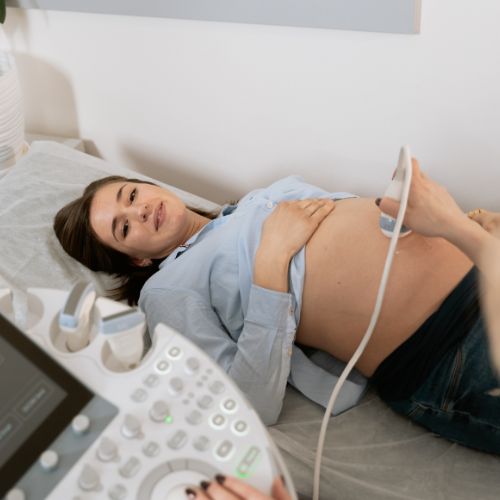Reciprocal in vitro fertilization allows both women in a lesbian partnership to be a part of the creation of life. Many who are a part of the LGBTQ+ community use this treatment to build their families. Many factors are involved in reciprocal IVF such as hormonal treatment, preparation time, and costs. Read to learn more about the advantages of utilizing reciprocal IVF for building your family.
What is Reciprocal IVF?
Reciprocal in vitro fertilization (IVF) is a fertility option that is best suited for lesbian couples who both want to participate in the process of conceiving a child. Reciprocal IVF otherwise known as “shared motherhood,” involves one partner providing the eggs that are fertilized with donor sperm, and the other partner carrying the pregnancy.
The Process of Reciprocal IVF
Reciprocal in vitro fertilization can be a complex and lengthy process for both women. With the right assisted fertility team though, the process can be seamless and secure. Many same-sex female couples though are unaware of what the process will look like.
Common steps taken in the reciprocal IVF process can include:
- Initial Consultation: The intended moms will meet with a fertility specialist to discuss the options and determine if they are great candidates for reciprocal IVF. The fertility specialist will review the medical history of both partners, perform a physical exam, and may order diagnostic tests.

- Egg Retrieval: The partner who will provide the eggs will undergo what is known as ovarian stimulation. Ovarian stimulation is performed so that the partner providing the eggs can produce multiple eggs for retrieval. This involves daily injections of hormones for around two weeks, followed by a trigger shot to encourage ovulation. The eggs are then retrieved through a minimally invasive procedure.
- Fertilization: When the eggs are then retrieved, they are fertilized with donor sperm in the laboratory. Over several days, the eggs are then monitored to see if they develop to be an embryo.
- Embryo Transfer: The embryos are transferred into the uterus of the partner who decided to carry the pregnancy to full term. This is usually done using a thin catheter inserted through the cervix. The number of embryos transferred depends on different factors, such as a woman’s age and the quality of the embryos.
- Pregnancy Test: The couple will then wait about two weeks after the embryo is transferred. A pregnancy test will be taken to detect if the fertility treatment was successful.
FAQS About Reciprocal IVF
- Who is a good candidate for reciprocal IVF? Great candidates for reciprocal IVF can be a same-sex female couple that has been evaluated and approved to be in good health standing.
- How is the sperm donor selected? Every couple will have different requirements of what characteristics they would like their child to have. Qualities that couples keep in mind with selecting a sperm donor include a person’s medical history, physical characteristics, educational background, or lifestyle.
- How much does reciprocal IVF cost? The total cost of reciprocal IVF is dependent on several expenses. The cost involves the expenses for ovulation stimulation, egg retrieval, sperm donation, fertilization, embryo transfer, and necessary diagnostic testing.
- Are there any risks associated with reciprocal IVF? Reciprocal IVF, like any medical procedure, does carry certain risks. Multiple pregnancies, failed cycles, or emotional and psychological consequences.
- Can the partners choose which partner provides the eggs and which partner carries the pregnancy? Absolutely. If both partners have undergone diagnostic testing and have been cleared for health issues, they can decide amongst themselves who will be the one to carry out the pregnancy.
Interested in IVF?

Reciprocal IVF provides both female partners with an active role in the conception and pregnancy process. It is a great option for same-sex female partners to build their families. The team at Reproductive Fertility Center is here to support LGBTQ+ individuals on the path to becoming parents. Our fertility specialists have been serving patients for over three decades. Contact our Inland Empire, Orange County, or Los Angeles County offices at (949) 453-8600 today!
Learn About Treatments for the LGBTQIA+ Community
We strongly believe that LGBTQIA+ individuals and couples have the right to access inclusive fertility treatments that affirm their identities and help them fulfill their dreams of starting a family. If you’re interested in learning more about fertility options specifically designed for same-sex and transgender couples, we invite you to visit our dedicated page for the community. We look forward to having the opportunity in helping you navigate this journey towards parenthood with support and understanding.




